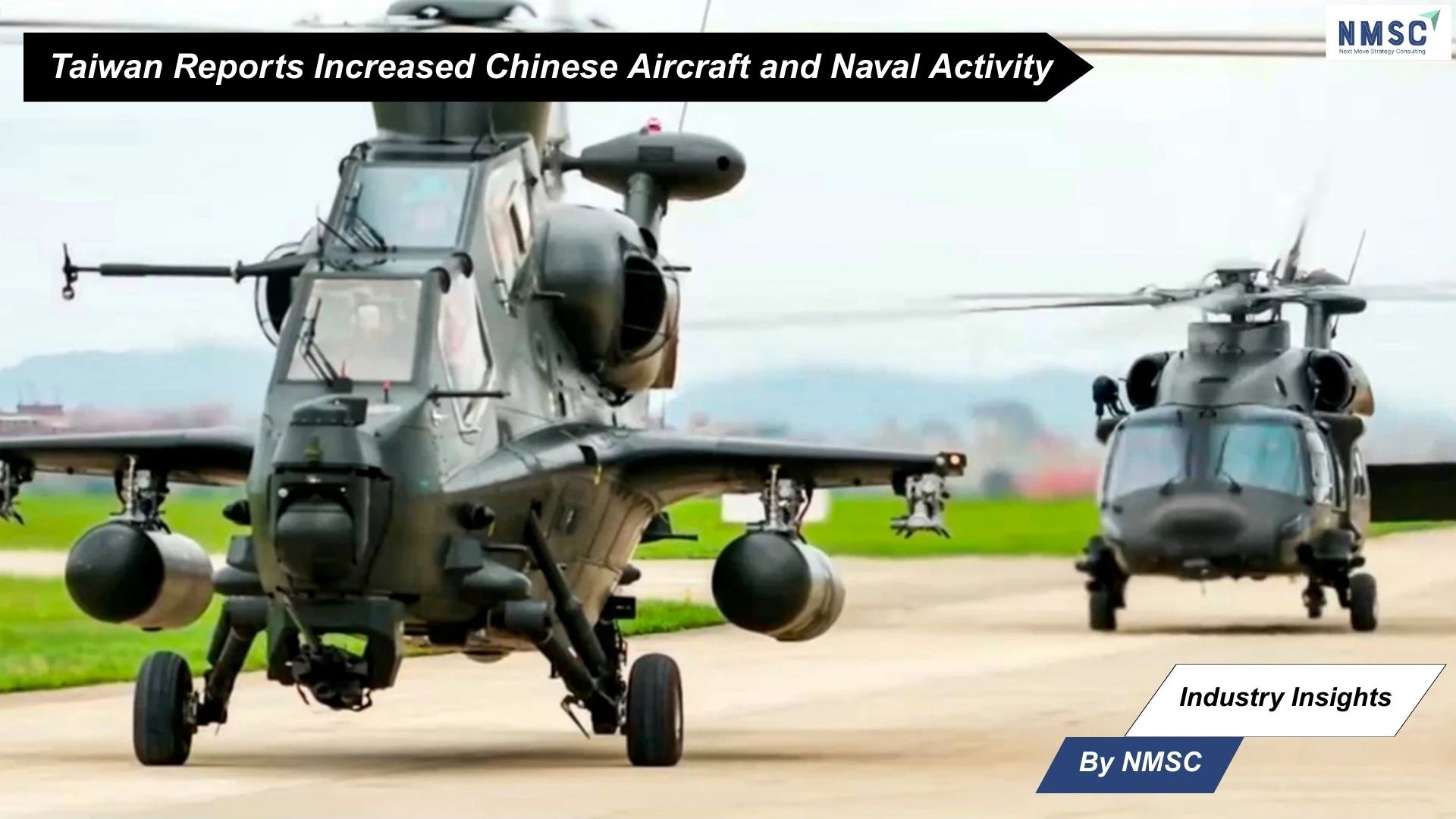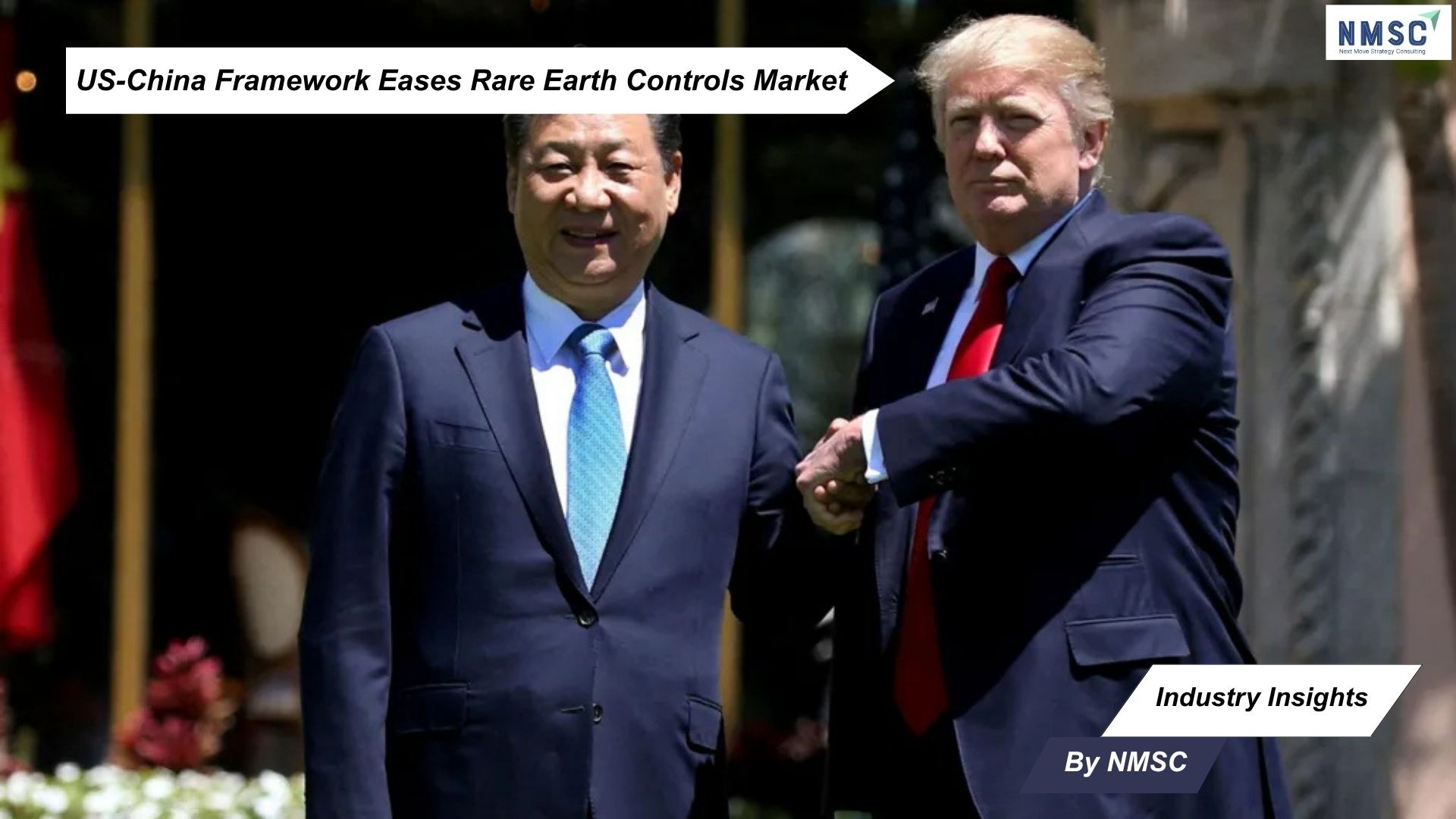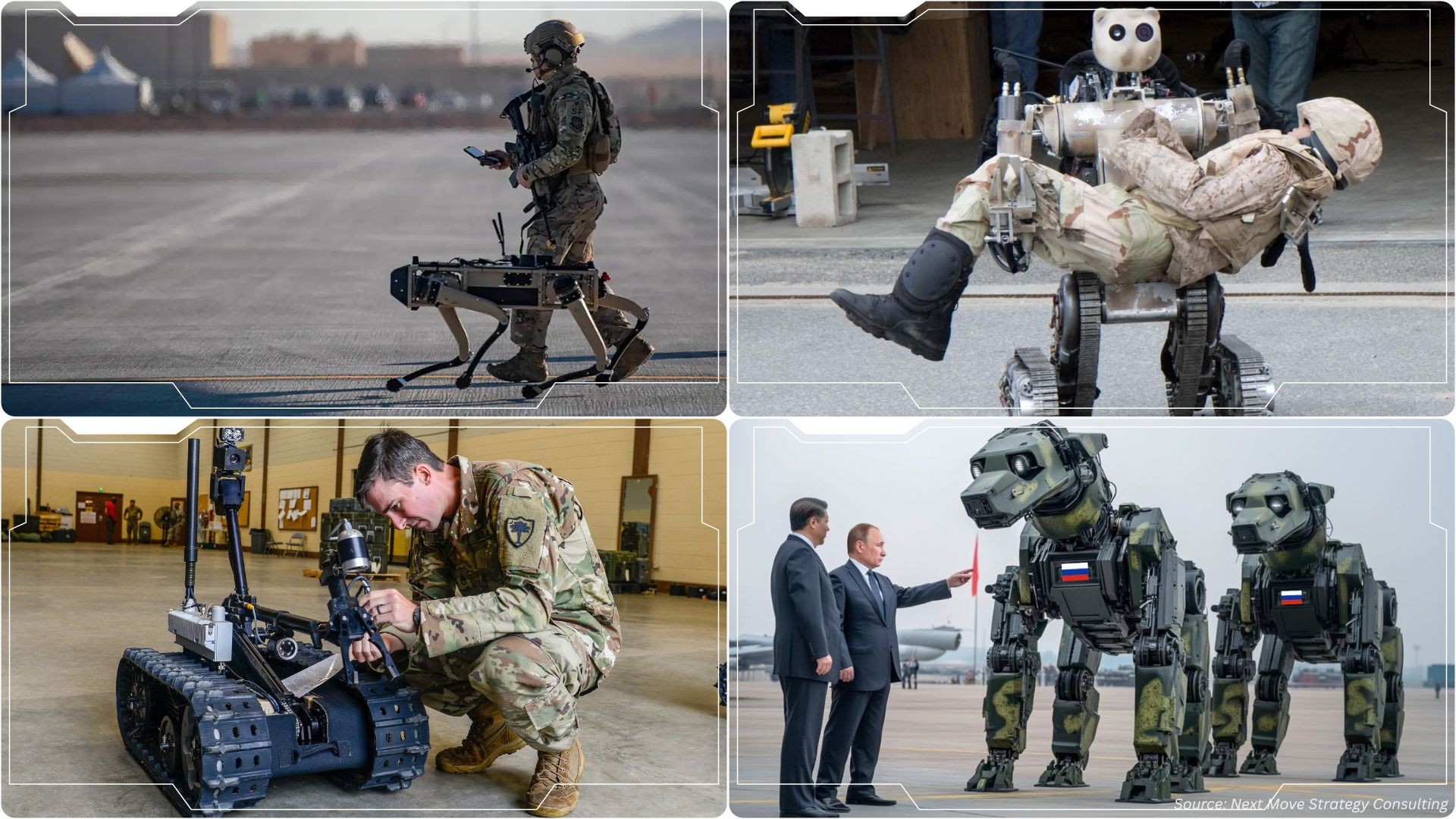Taiwan Reports Increased Chinese Aircraft and Naval Activity
Published: 2025-09-19

Industry Insights from Next Move Strategy Consulting
Taiwan’s Ministry of National Defence (MND) reported increased Chinese military activity, noting that up to 6 a.m. on Friday it had detected 13 sorties by People’s Liberation Army (PLA) aircraft along with six People’s Liberation Army Navy (PLAN) vessels operating near its territory.
PLA Aircraft and Vessels Detected Near Taiwan
According to Taiwan’s Ministry of National Defence (MND), a total of 13 People’s Liberation Army (PLA) aircraft and six People’s Liberation Army Navy (PLAN) vessels were detected operating around the island up until 6 a.m. (UTC+8) on Friday. The ministry noted that eight of the sorties crossed the Taiwan Strait’s median line and entered the northern, southwestern, and eastern sections of Taiwan’s Air Defence Identification Zone (ADIZ). “We have monitored the situation and responded accordingly,” the MND stated in a post on X.
Chinese Military Activity Reported on Thursday
Taiwan’s Ministry of National Defence (MND) reported that on Thursday it detected seven sorties by People’s Liberation Army (PLA) aircraft and six People’s Liberation Army Navy (PLAN) vessels near the island. Of these, three aircraft crossed the median line of the Taiwan Strait and entered the northern and southwestern sections of Taiwan’s Air Defence Identification Zone (ADIZ).
Taiwan Accuses Beijing of Heightened Military Pressure
Taiwan has consistently accused China of escalating military activities as part of its pressure campaign. The island’s defence ministry emphasized that its forces closely monitor these movements and respond when necessary. Such frequent incursions and naval operations highlight the growing tensions between Taiwan and China, whose relationship has long been marked by geopolitical friction. Officially known as the Republic of China (ROC), Taiwan operates with its own independent political and economic systems.
China Asserts One China Policy Amid Taiwan Tensions
China continues to claim Taiwan as part of its territory under the "One China" principle, asserting that there is only one China with its capital in Beijing. The dispute dates back to the end of the Chinese Civil War in 1949, when the Republic of China (ROC) government retreated to Taiwan after the Communist Party, led by Mao Zedong, gained control of mainland China. Since then, Beijing has pursued reunification, employing military, diplomatic, and economic measures to pressure Taiwan and limit its international space. Despite these efforts, Taiwan maintains de facto independence, enjoys strong public support, and continues to assert its sovereignty amid ongoing external pressures. The Ministry of National Defence (MND) regularly monitors and publicly reports such military activities to ensure transparency and national security awareness.
Impact of Rising Taiwan-China Tensions on the Air Defense Market
Heightened Demand for Advanced Air Defense Systems
The recent surge in Chinese military activity near Taiwan, including multiple PLA aircraft sorties and PLAN vessel operations, is expected to significantly influence the regional and global air defense market. Heightened geopolitical tensions often drive governments to prioritize national security, creating increased demand for advanced surveillance, radar, missile defense, and integrated air defense systems.
Market Implications
The increased military incursions are likely to have the following effects on the air defense sector:
-
Positive Impact on Defense Spending: Governments in the Asia-Pacific region, especially Taiwan, may allocate higher budgets for upgrading air defense capabilities, including early warning systems, surface-to-air missiles, and interceptor technologies.
-
Boost for Advanced Technology Providers: Companies specializing in radar, missile interception, and command-and-control systems could see increased orders due to the need for state-of-the-art defense solutions.
-
Strengthened Regional Security Cooperation: Heightened tensions may encourage regional partnerships and joint defense procurement programs, benefiting multinational defense contractors.
-
Acceleration of Innovation: The urgency for effective monitoring and rapid response systems may accelerate research and development in AI-enabled threat detection, unmanned aerial systems, and integrated air defense networks.
-
Potential Market Risks: While demand is likely to rise, prolonged conflict risks could disrupt supply chains and increase costs for advanced defense systems.
Overall, the recent PLA activities near Taiwan are expected to positively drive growth in the air defense market, particularly in the Asia-Pacific, as governments respond to evolving security threats and modernize their air defense infrastructure.
Source: https://aninews.in/
Prepared by: Next Move Strategy Consulting
About the Author
 Karabi Sonowal is an experienced SEO Executive and Content Writer in digital marketing. She excels in SEO, content creation, and data-driven strategies that boost online visibility and engagement. Known for simplifying complex concepts, Karabi creates impactful content aligned with industry trends.
Karabi Sonowal is an experienced SEO Executive and Content Writer in digital marketing. She excels in SEO, content creation, and data-driven strategies that boost online visibility and engagement. Known for simplifying complex concepts, Karabi creates impactful content aligned with industry trends.
About the Reviewer
 Debashree Dey is a skilled Content Writer, PR Specialist, and Assistant Manager with expertise in digital marketing. She creates impactful, data-driven campaigns and audience-focused content to boost brand visibility. Passionate about creativity, she also draws inspiration from design and innovative projects.
Debashree Dey is a skilled Content Writer, PR Specialist, and Assistant Manager with expertise in digital marketing. She creates impactful, data-driven campaigns and audience-focused content to boost brand visibility. Passionate about creativity, she also draws inspiration from design and innovative projects.
















Add Comment